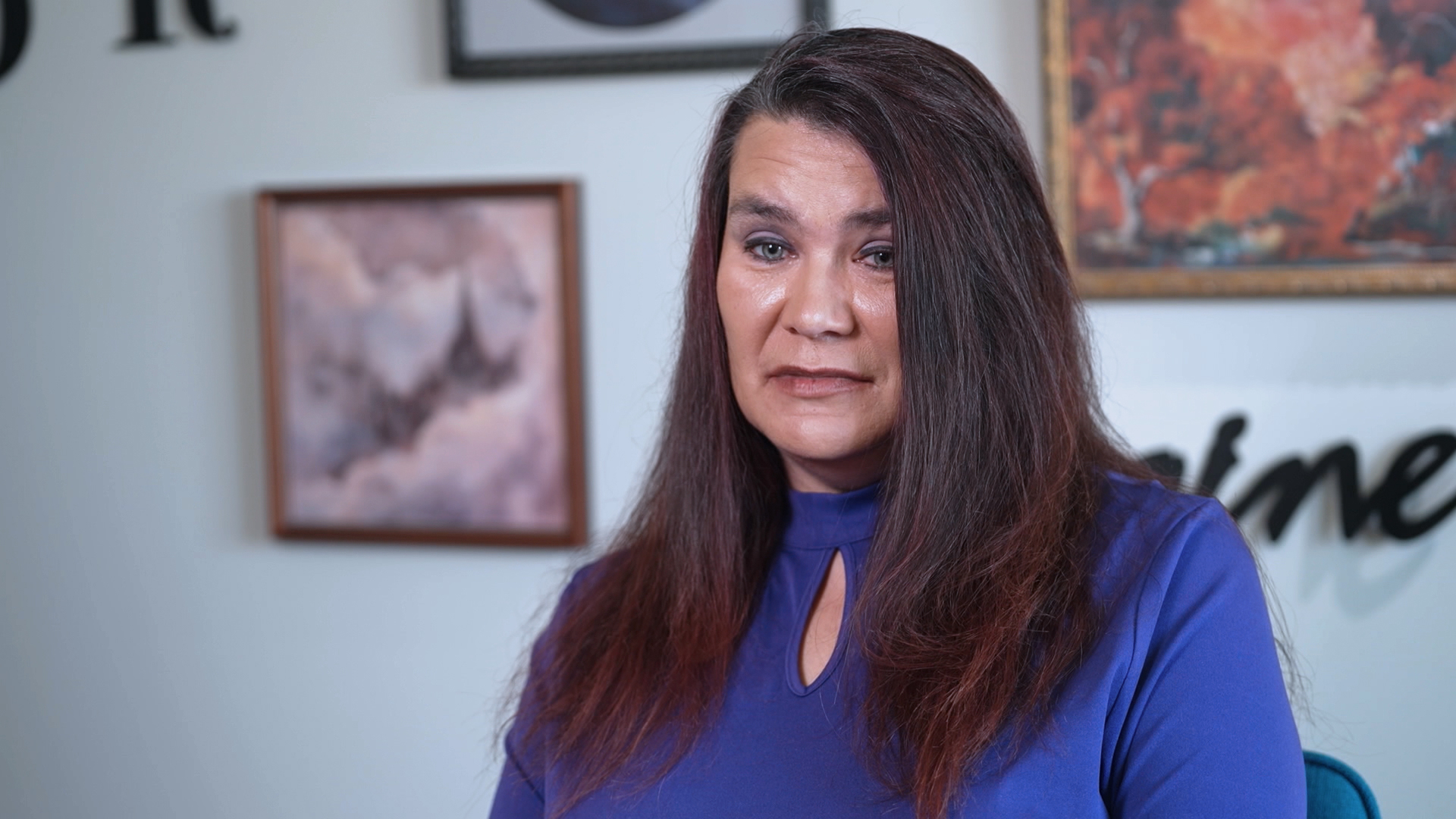Galia Ahava Meira became a victim of sex trafficking when she was just a toddler.
“It started when I was three actually,” Galia told CBN News.
Her own grandfather took that step by selling her for sex to his fellow members of the KKK. “That went on up until he passed away when I was almost seven,” Galia explained.
The trauma from that experience then led to a lonely life of drug and alcohol abuse.
“I actually had been on life support for nine days due to an overdose and no one came to the hospital to see me. No one in my family at all,” she said. “When I woke up after they had taken the machines off, there was a social worker there from CPS and that is how I got out. I got put in foster care.”
After aging out of foster care, Galia hoped marriage might provide a new start. Sadly, her husband continued the exploitation and even became her pimp.
“He actually would sleep with a pistol under my pillow with his finger on the trigger,” said Galia. “He, in the community, had a lot of power because of the job that he did. So, for me to just be able to reach out to someone and say, ‘This is happening,’ wasn’t possible.”
Her breakthrough came during a secret Skype call with a trauma counselor who told Galia about Rest Stop Ministries – Tennessee’s first long-term program for female sex trafficking victims.
Galia explained, “They partnered with another agency and sent a rescue team to Ohio to get me out of that situation.”
“These women come to us, broken body, mind, soul, and spirit,” Rondy Smith, founder and executive director said in an interview with CBN News. “We have a trauma-focused therapist and we have clinical case managers who are linking arms and creating comprehensive healing plans that help these women deal with whatever they need to deal with to be completely rehabilitated, made whole in Christ.”
Smith went on to explain the ministry’s holistic approach.
“We tell these women when they come through the door, ‘Your life has been hard, but the bravest thing you’ve ever done is walk through these doors and the healing journey is going to be just as hard. And if you’ll come and just focus on doing the very hard work of healing, we’re going to take care of your every need.'”
Part of that healing includes a nine-month curriculum called Good Hope Farms that provides education and employment opportunities.
“They are learning job skills, paid hands-on,” said Smith. “They’re being paid to learn because they need to be ready when they transition. And when they start working and earning and it boosts their self-esteem and they realize there is hope for me to transform my life.”
That hope was actually born from tragedy according to Smith.
“In February of 2014, the matriarch and patriarch who lived in this house were murdered,” Smith shared. “A bomb exploded in their kitchen.”
While seeking a location for her ministry, Smith met that couple’s daughter Laura who co-owned the property.
“Laura said, ‘My mother always wanted to serve the last and the least and the lost,'” Smith said. “She was the kind of person who wanted to give radical hospitality to broken women. She always wanted them to have a place at the table. Everybody needed a home. And she said, ‘I can’t imagine a better legacy for the memory of my mother who was the one who named this property when they moved in, Good Hope Farms.'”
“She said to her children and kids, ‘We don’t just have a hope, we have a good hope. And his name is Jesus Christ,'” Smith said.
After purchasing the 25-acre property, the growing ministry focused on cultivating that hope by turning evil into good for Laura, her family, and many trafficking victims.
“We have seen in our eight and a half years being open 57 souls who have come through,” Smith highlighted. “And you might say, ‘Well, that doesn’t sound like a lot for eight years.’ Remember they can stay here two full years.”
“So many of them now are living independently for the very first time,” Smith added. “They get their driver’s license for the first time when they’re here.”
Medical needs are also being met.
“We had a resident who came here with no teeth because her pimp had knocked them out with a bat and she got a new smile,” said Smith.
Due to this type of trauma, the ministry must take care in its approach to sharing the gospel and Smith said testimonies of lives changed are especially gratifying.
“We have a group of women right now, they’ve claimed a church here in town. They go together as a community. They love it. They are on fire. They know that God has been their answer.”
That includes Galia whose name in Hebrew means “beloved, redeemed, shining light.”
Since completing the program, she now helps others at a short-term rehab facility in Nashville.
“Everyone at Rest Stop has walked beside me when I was struggling,” Galia testified. “They were my legs so I could stand, and they would hold me up till I could walk on my own.”
She went on to say, “To walk into that and watching my clients come in broken and hopeless and helpless to the day they leave and watching that transformation is one of the greatest blessings that I can receive.”
It is a transformation Galia hopes to help provide to other survivors.
“There is love out there – the love of Jesus and those people he put in the path. You don’t have to do it alone. There’s hope, there’s healing, there’s freedom.”



